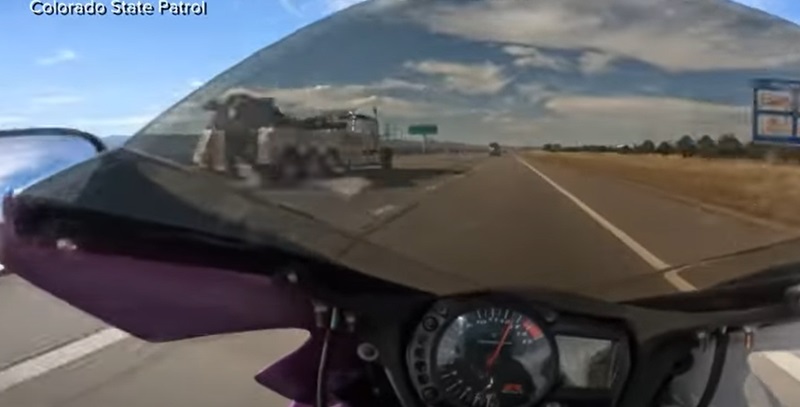
Google Maps shows that it takes over an hour to drive from Colorado Springs, CO to Denver but motorcyclist Rendon Dietzmann made the trip in 20 minutes. As daredevils are wont to do, Dietzmann videoed his adventure showing his speedometer displaying speeds, sometimes reaching up to 173 mph. Thanks to being alerted by the video posted on social media, Colorado authorities arrested the boastful biker on multiple charges.
While many law enforcement agencies post videos on social media from surveillance and cellphones showing suspects (or persons of interest) in order to elicit tips from witnesses, some offenders do the work for the police by posting their own self-incriminating information. A Georgia Sheriff’s Department posted a list of most wanted persons on their social media, allowing comments from viewers. One of those comments was from Christopher Spaulding who, apparently feeling disrespected, posted “What about me?”. The Rockdale Sheriff’s Office did a quick check on Spaulding to find out he was, indeed, wanted on two felony warrants. The Sheriff’s Office’s response to Spaulding’s comment: “We are on the way.”
In North Carolina, two brilliant entrepreneurs listed a trailer they had stolen on Facebook Marketplace just two days earlier. The owner identified the trailer online, leading police to the suspects who were subsequently arrested, one of whom was in possession of illegal drugs at the time of his booking.
In South Carolina, 41-year-old Patrice Smith, knowing that there was an active Failure to Appear Warrant outstanding for her, announced on Facebook that “I’m out and about!!!! Tell the police that’s looking for me I’m definitely out here.” Smith had changed her address but a tip from a viewer of the post gave the police her current address and the description of her car. Despite Smith’s apparent eagerness to play tag with the cops, she refused to come to the door when they arrived at her home. They obtained a search warrant and arrested her.
Florida Sheriff Mike Chitwood got word that a gamer in the underworld of 4chan and Minecraft had made a credible death threat toward Chitwood. While many keyboard warriors think they are eight anonymous or immune from discovery, Richard Golden, 38 was traced via his internet address to New Jersey where, unsurprisingly, he lived with his mother.
In Lima, Ohio police arrested Donald Pugh and posted his arrest photo (mug shot) after he failed to appear on the charge. He was also a person of interest in other crimes, with a number of previous charges. Mr. Pugh found the photo so unflattering that he messaged police with a better photo. Lima police added the proffered photo which, due to its irony, received thousands of views and shares. Enamored with his micro-celebrity, Pugh even called into a local radio show to chat with the morning DJs about the terrible photo. Pugh was later located and arrested in Florida but had to make a side trip to Georgia to face charges before facing his Ohio justice.
Markesha Wilkerson failed to show up on criminal charges, including a felony, but that didn’t keep her from enjoying a playful trip to Chuck E. Cheese pizza joint in Lakeland, Florida. She was having so much fun dancing with the animated characters that she live-streamed her visit. As is often the case, law enforcement monitors wanted persons’ social media, and deputies noted the live post and managed to get to the restaurant before Wilkerson could hide in the ball pit.
Social media has been a rich garden where many seeds of criminal activity are sown, and law enforcement has harvested plenty of information from sites. From unveiling school shooter plots to catching scammers and child predators to locating stolen property to disproving alibis, scouring social media is now a routine patrol.
Make a difference. Support the NPA.